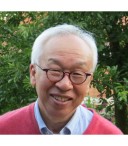Prof. Hiroshi Hamada
Hiroshi Hamada has studied how the body is correctly formed in vertebrate embryos, in particular, how left-right asymmetry of the body is created. Since the discovery of the asymmetric gene Lefty in 1995, he dissected and clarified the genetic pathway governing left-right asymmetry, from the symmetry breaking, differential patterning of left and right sides by secreted signals and finally to organ formation.
Hiroshi was a team leader at RIKEN Biosystems Dynamics Research until March 2023, but has moved to India as Visiting Professor in National Center for Biological Sciences, and Distinguished Visiting Professor in Ashoka University. Born in Japan, he initially studied medicine but was later trained as a cancer cell biologist through 5 years of post-doc in National Institute of Health, USA. He began to study cell differentiation of embryonal carcinoma cells when he became assistant professor in Newfoundland, Canada. He eventually returned to Japan in 1988 and stayed at Osaka University until 2017 where he studied developmental biology. Hiroshi was elected to Associate Member of the European Molecular Biology Organization in 2016 and to Foreign Member of the Royal Society in 2022, and was awarded the Keio Medical Science Prize in 2014.



